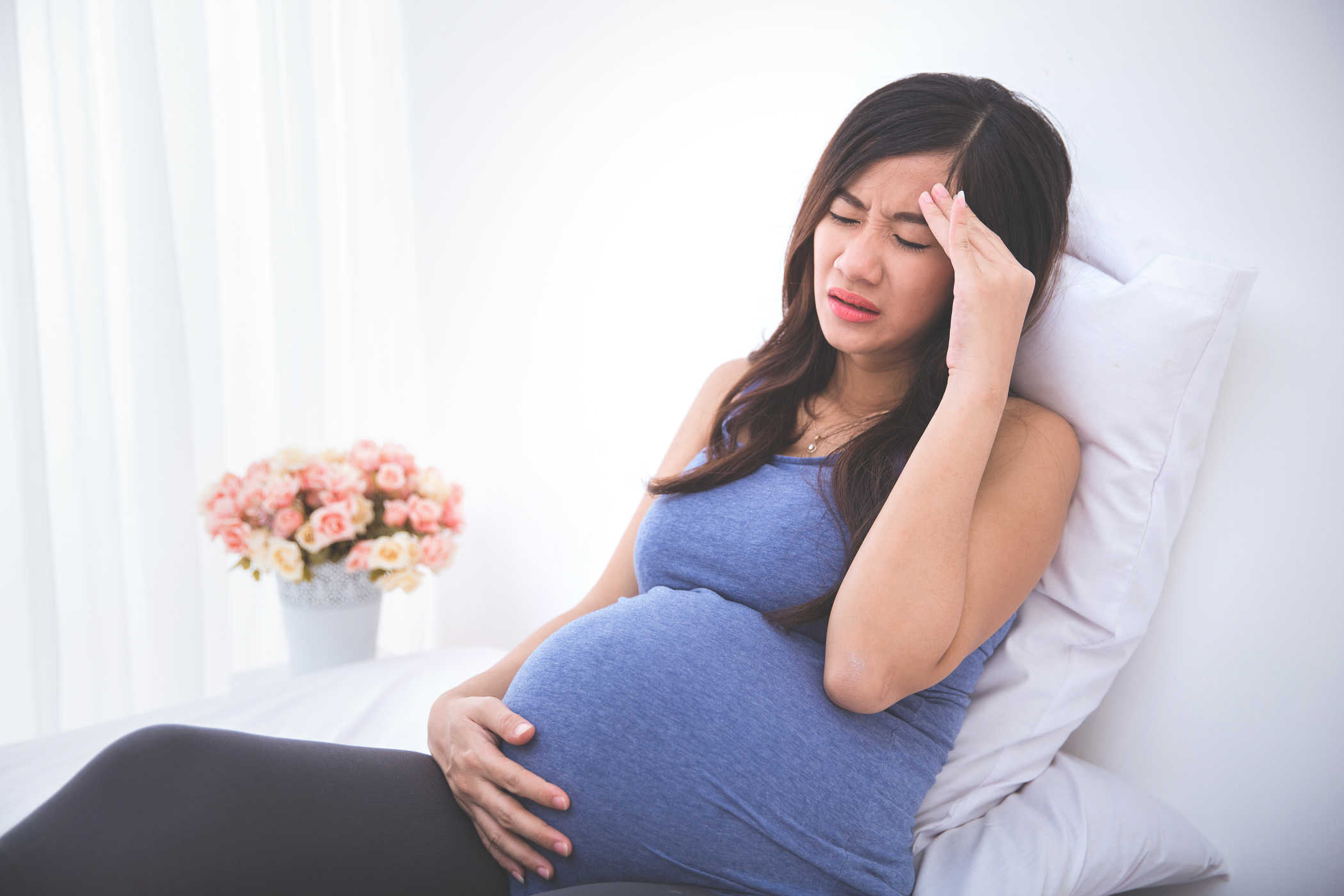Contents:
- Medical Video: Pregnancy FAQs : How to Get Pregnant With Anemia
- Negative effects on the mother during pregnancy
- Reproductive deaths
- Performance during pregnancy and childbirth
- Lactation performance
- Immune status
- Negative effects on babies
- Health and development
Medical Video: Pregnancy FAQs : How to Get Pregnant With Anemia
Iron deficiency can cause conditions ranging from iron deficiency anemia, to anemia due to iron deficiency. In conditions of iron deficiency, the amount of iron stored (measured by serum ferritin concentration) decreases but the amount of iron flowing and functional iron may not be affected. People with iron deficiency do not have enough iron reserves to use if the body needs additional iron.
In conditions of erythropoiesis due to iron deficiency, stored iron is depleted and flowing iron (measured by transferrin saturation) decreases; the amount of iron absorbed is not enough to replace the amount of iron lost or to provide the amount of iron needed for body growth and function. In this stage, iron deficiency limits the production of red blood cells and causes an increase in erythrocyte protoporphyrin concentration.
In conditions of anemia due to iron deficiency, which is the most severe condition of iron deficiency, there is a shortage of iron reserves, iron flow and functional iron, thereby reducing Hb and low serum ferritin, low flow iron concentration and increasing concentration erythrocyte protoporfirin.
Negative effects on the mother during pregnancy
Reproductive deaths
Pregnant women who experience anemia are at risk of death during the prenatal period. Almost as many as 500,000 maternal deaths due to childbirth or early postpartum occur every year, most of which occur in developing countries. Anemia is the main or only cause in 20-40% of these deaths. In many areas, anemia is a factor in almost all deaths of pregnant women and results in a 5-fold increase in the overall risk of maternal mortality associated with pregnancy and childbirth. The risk of death increases dramatically in severe anemia.
These cases of maternal mortality, mostly related to pregnancy and childbirth, contrast with those in the industrial world where maternal mortality is almost 100 times less and severe anemia is very rare. It is important to realize that severe anemia is associated with very low socio-economic conditions and health conditions in certain countries and regions of the developing world. Along with malaria infection, other infections, and some nutritional deficiencies, including folate and vitamin A, endemic also occurs in this population. Iron deficiency contributes significantly to most cases of anemia during pregnancy.
The risk of complications during birth, including fetal death, is higher among the poor population who also show slow body development. General malnutrition and especially iron and folate deficiency during childhood and adolescence disrupts physical growth. Both iron supplements and folic acid can produce better growth in children and teenage girls who are pregnant.
Performance during pregnancy and childbirth
Pregnant women who experience anemia due to iron deficiency have a shorter pregnancy period than non-anemic ones, or even pregnant women who are anemic but not because of iron deficiency. A prospective study shows that all pregnant women experiencing anemia have a higher risk of preterm labor in relation to non-anemic women.
The group of iron-deficiency anemia has twice the risk of those with anemia in general. These results were obtained after controlling for maternal age, parity, ethnicity, pre-natal weight, bleeding, gestational age from the initial blood condition, number of cigarettes smoked per day, and pre-pregnancy body mass index. Inadequate pregnancy weight (for certain gestational age) is significantly more high risk for all cases of anemia, especially among those who are iron deficient. Inadequate weight has also been linked to preterm labor.
In some populations in the tropics, folate supplementation also results in increased hematological status, increased birth weight, and reduced incidence of preterm birth.
These results confirm and clarify other retrospective studies or provide indirect evidence that better nutrition, including a lower prevalence of anemia, is associated with better birth weights and lower rates of preterm birth, and anemia associated with an increased risk of birth premature. The more severe the anemia, the greater the risk of low birth weight.
Childbirth requires great endurance and physical effort and physically healthy women (almost impossible in the face of severe anemia) have better conditions and have fewer complications during birth when compared to women who are less fit. In severe anemia, heart failure during labor is the main cause of death.
Lactation performance
There is no evidence that iron-deficient mothers or anemia are less competent than other normal mothers in the breastfeeding process, and the composition of milk, both in terms of macro and micro-nutrients, basically does not change.
However, even under the best of circumstances, iron in breast milk has been shown to be insufficient to maintain adequate iron nutrition in infants over 4 to 6 months.
Immune status
Two studies in India showed that severe anemia and iron deficiency in pregnant women triggered a disturbance in cell-mediated immunity that is reversible with iron treatment. The important control variable that was lacking in this study was documentation of folate nutrition.
Negative effects on babies
Health and development
Two large studies in the industrial world involving more than 100,000 pregnancies clearly show that unfavorable pregnancy outcomes often occur among mothers who have anemia. Both studies found that there were higher rates of fetal death and abnormalities, preterm labor, and newborns with low birth weight in mothers with anemia. This risk is obvious, even among mothers who have anemia only in the first half of pregnancy. There is a significant correlation between anemia severity, preterm birth, and very low birth weight.
Anemia causality in unwanted pregnancy outcomes was further determined by studies that showed positive results obtained in birth weight and perinatal mortality with successful treatment of anemia with iron and folic acid.
In terms of health and development of infants, children with low birth weight suffer losses especially in developing countries where the risk of malnutrition, infection and death increases. An additional risk for infants may come from the fact that iron deficiency and anemia in children, as well as in adults, produce changes in brain function which can lead to disruption of mother-child interactions and disruption at school later. There is evidence that babies who are anemic due to iron deficiency can produce long-lasting defects in mental development and performance that interfere with children's learning abilities












